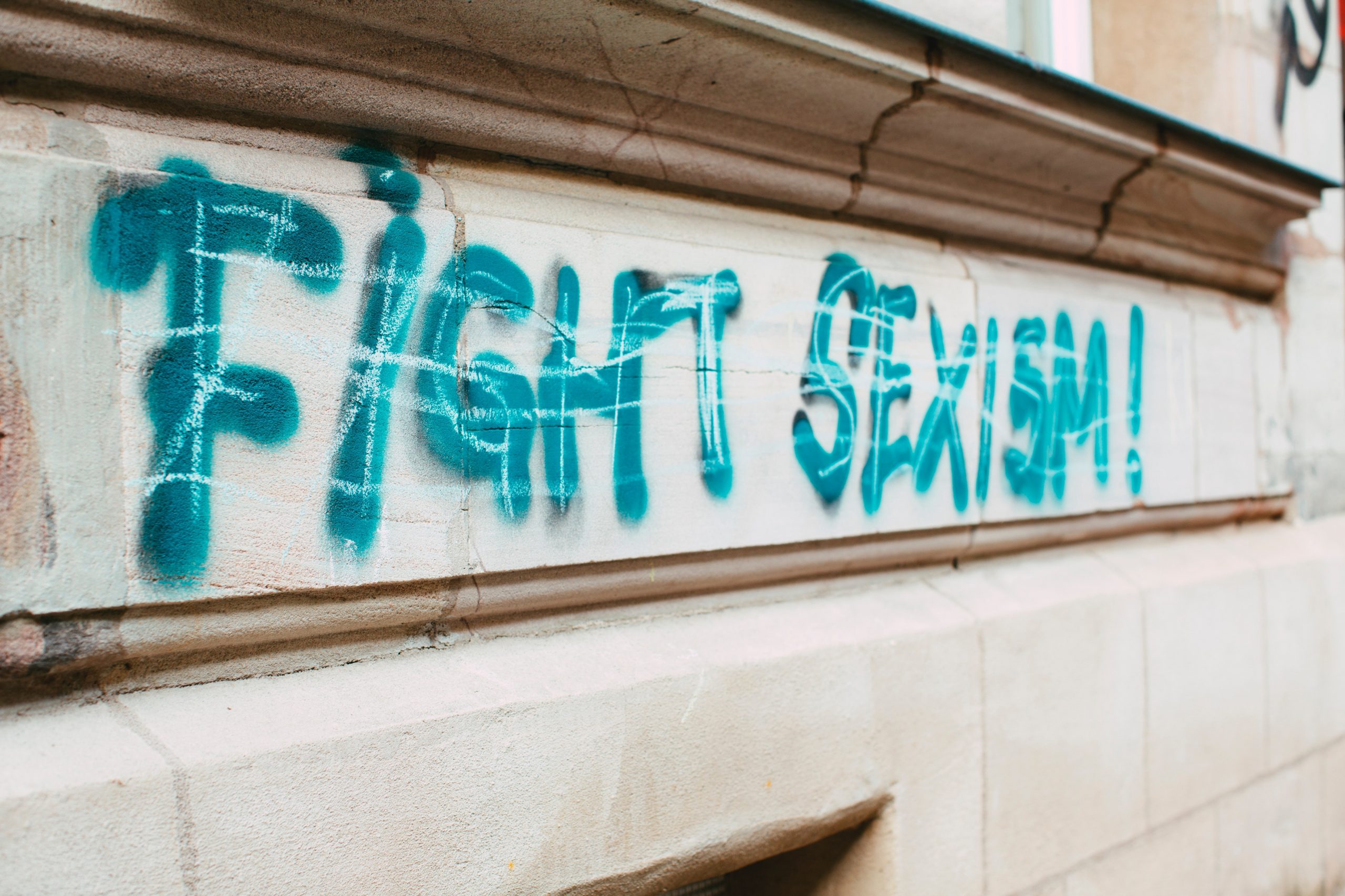Tackling misogyny and harmful attitudes towards women
Chloe Hughes looks at some of the ways we can tackle the sexism and misogyny that lay the foundations for male violence.
What is misogyny?
Misogyny is, by definition, dislike of, contempt for, or ingrained prejudice against, women. Misogyny is deeply rooted in our society, from ideas that women should become good housewives and that ‘boys will be boys’, to the objectification of women, and male violence.
In parts of society we have started to move away from these attitudes. For example, it is becoming more acceptable for women to continue to work after having children. However, these are small steps in a world where misogyny is built into society and something women face every day. 
Women have been collectively fighting and standing up to misogyny for years but this isn’t something that women can tackle on their own. Men need to recognise this is a problem and start to do more in order to stop it – not just because it might affect their daughters, sisters, or mothers, but because all women are humans and should be able to live without prejudice. More awareness needs to be raised around the topic of misogyny, what its impacts are and how they have the potential to be damaging and long-lasting.
Tackling misogyny
Education and training
Misogyny can be tackled through training and education. The topic needs to be taught consistently within schools from a young age, based around the ideas of:
- boys and girls being treated with the same respect
- healthy relationships
- regulation of emotions
Sexist language and gender stereotypes should also not have a place within schools. For example, the phases ‘man up’ or ‘you throw like a girl’, as well as the exclusion of boys or girls from certain games or sports.
Teachers should therefore be trained fully on these topics in order to teach them properly to every student. They also need to be able to recognise comments and behaviours that suggest a misogynist attitude to then deal with them appropriately. For instance, not ignoring or punishing the child or young person but instead being more informative to teach them why their behaviour is wrong. If this is taught and consistently enforced from a young age in an age-appropriate way, it will have a positive and lasting effect on society.
Policy and practice
Misogyny can also be tackled within working environments through policy and practice.
Training needs to be provided to managers to recognise behaviours, know what to do and how to approach different situations. Companies should also lead by example with high-ranking leaders always promoting and taking on these policies to tackle misogyny as a whole organisation.
Training should also be given to every employee about attitudes, prejudice, and what to do if comments or behaviours make them feel uncomfortable. This training should be mandatory and regularly refreshed.
Bystander awareness
Another way to tackle misogyny directly, and which has the potential to be the most effective, is to always call it out.
Whether it is a joke between friends at the pub, catcalling on the street, or comments made about a female boss, a simple ‘hey mate, that wasn’t funny’ or ‘you shouldn’t speak about women like that’ could be the trigger that people need to revaluate their behaviour.
We need action, not words
Women do not need to be told that it is ‘not all men’ or whether or not men see themselves as feminists.
We need to be shown through the actions of men against misogynists – not through just their words, and without them expecting to be our ‘knight in shining armour’ or expecting anything in return.
Misogyny is an act against women but it is a problem within men. Men that ignore the misogynistic comments, actions, or attitudes from their friends, family, or colleagues because they feel it’s not their place to call it out, play a part in making the problem worse. It is, in fact, exactly their place to speak up.
This issue is starting to be tacked within politics and the wider community. For example, the House of Lords voting to make misogyny a hate crime. Avon and Somerset Police has been doing this since 2017, as well as having Project Bluestone that aims to change how sexual assault cases are handled.
There are small signs that we are moving in the right direction in order to tackle the misogyny which is ingrained into society. However, there is still a very long way to go to stop this prejudice. To do this everyone has a part to play and we as women cannot tackle this on our own. We need the help of men to recognise misogyny, call it out and ultimately stop it.
Join Bristol Women’s Voice
Get involved with Bristol Women’s Voice to bring an end to misogyny once and for all.

